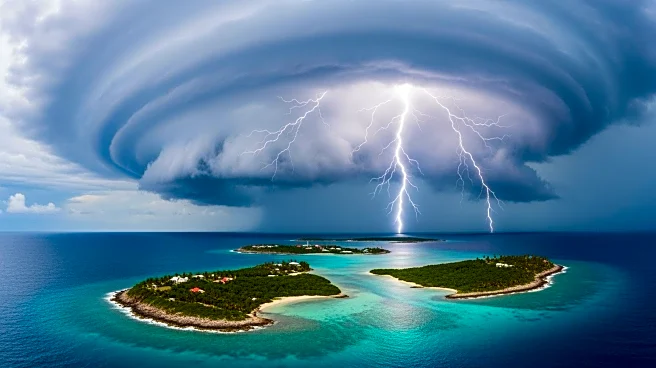What's Happening?
Hurricane Melissa has rapidly intensified into a Category 5 storm, driven by unusually warm ocean temperatures linked to climate change. The storm, with sustained winds exceeding 157 mph, is expected to make landfall in Jamaica, posing significant threats
of catastrophic flash flooding and landslides. This intensification is part of a broader trend where Atlantic hurricanes are increasingly undergoing rapid intensification, a phenomenon attributed to the warming of ocean waters. Experts highlight that the current ocean temperatures in the Atlantic are 2 to 3 degrees Celsius above normal, providing a vast reservoir of energy for such storms.
Why It's Important?
The intensification of Hurricane Melissa underscores the growing impact of climate change on weather patterns, particularly in the formation and strengthening of hurricanes. This poses increased risks to coastal communities, especially in the Caribbean, where infrastructure may not be equipped to handle such powerful storms. The economic and human toll could be significant, with potential loss of life, property damage, and disruption to local economies. The situation highlights the urgent need for global action on climate change, including reducing greenhouse gas emissions and investing in resilient infrastructure.
What's Next?
As Hurricane Melissa approaches Jamaica, emergency services are on high alert, preparing for potential evacuations and disaster response. The storm's impact could prompt further discussions on climate policy, particularly in vulnerable regions. International aid and support may be mobilized to assist affected areas, and there could be increased pressure on governments to implement stronger climate adaptation and mitigation strategies.
Beyond the Headlines
The intensification of hurricanes like Melissa raises ethical and policy questions about the responsibility of developed nations in contributing to climate change and their role in supporting vulnerable regions. It also highlights the need for improved early warning systems and community preparedness to mitigate the impacts of such natural disasters.
















